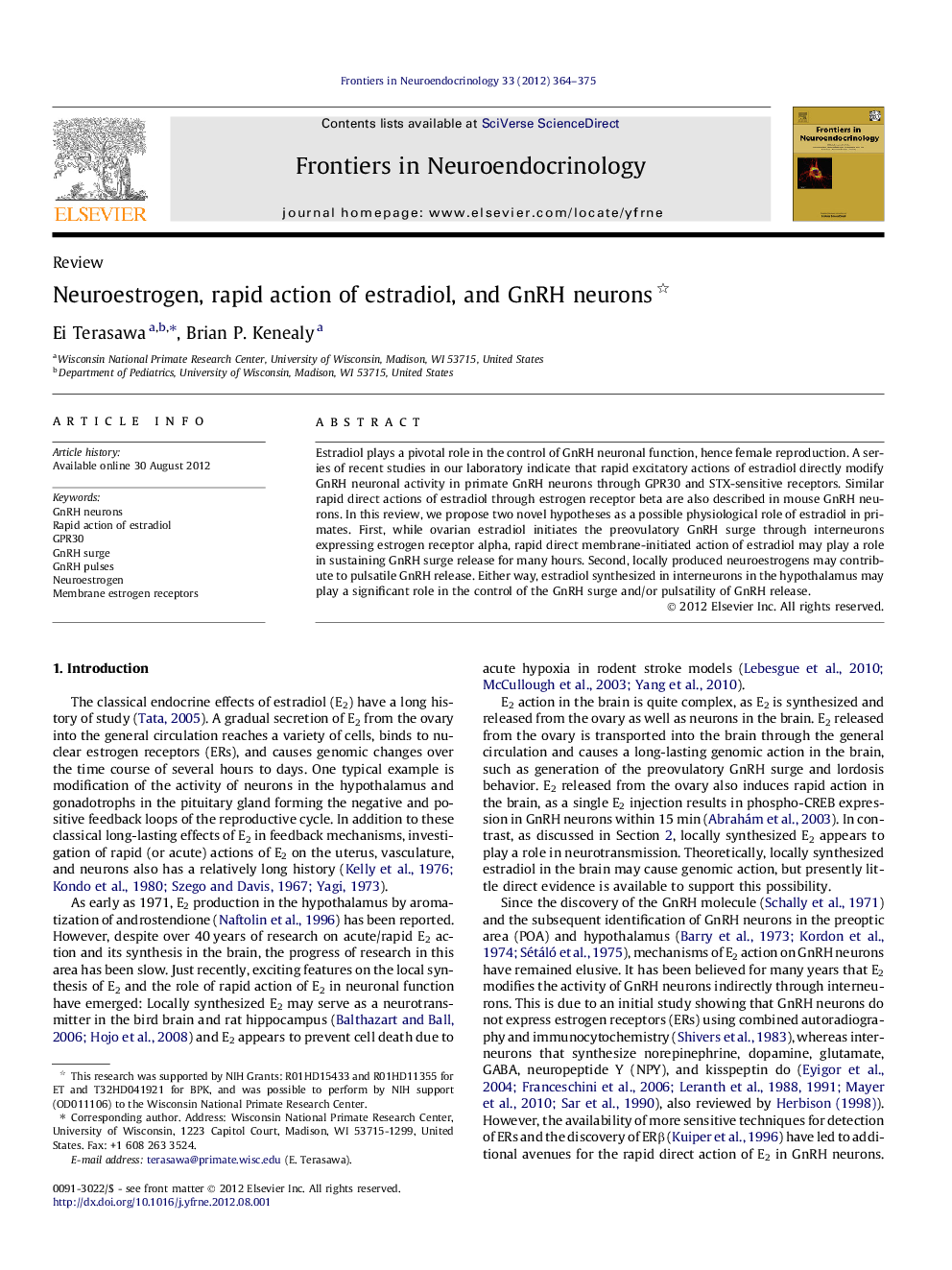| Article ID | Journal | Published Year | Pages | File Type |
|---|---|---|---|---|
| 2799413 | Frontiers in Neuroendocrinology | 2012 | 12 Pages |
Estradiol plays a pivotal role in the control of GnRH neuronal function, hence female reproduction. A series of recent studies in our laboratory indicate that rapid excitatory actions of estradiol directly modify GnRH neuronal activity in primate GnRH neurons through GPR30 and STX-sensitive receptors. Similar rapid direct actions of estradiol through estrogen receptor beta are also described in mouse GnRH neurons. In this review, we propose two novel hypotheses as a possible physiological role of estradiol in primates. First, while ovarian estradiol initiates the preovulatory GnRH surge through interneurons expressing estrogen receptor alpha, rapid direct membrane-initiated action of estradiol may play a role in sustaining GnRH surge release for many hours. Second, locally produced neuroestrogens may contribute to pulsatile GnRH release. Either way, estradiol synthesized in interneurons in the hypothalamus may play a significant role in the control of the GnRH surge and/or pulsatility of GnRH release.
► Estradiol induces a rapid excitatory action in primate GnRH neurons. ► The rapid estradiol action is mediated by non-classical estrogen receptors. ► Possible role of neuroestrogens in control of GnRH release is discussed. ► Historical perspective of neuroestrogen in the hypothalamus is reviewed.
